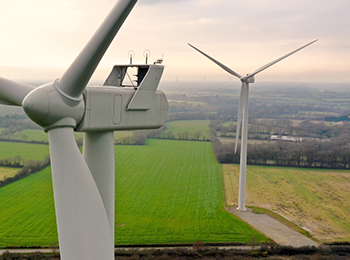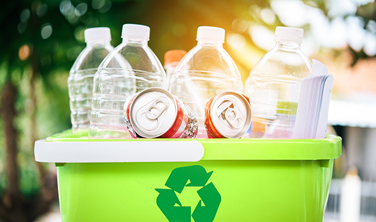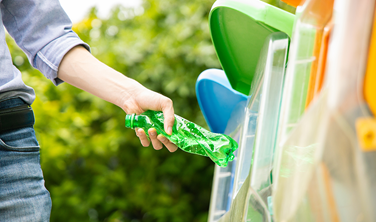Understand the obligations on local authorities, as well as business and other non-household municipal premises, for collections of recyclable waste for each of the four nations of the UK.
Collection Consistency is one of the three policies, alongside Extended Producer Responsibility (EPR) and the Deposit Return Scheme (DRS), collectively known as the ‘Collection and Packaging Reforms’. Collection Consistency is being pursued separately in each of the four UK nations.
Collection consistency generally involves:
Collection of a nationally agreed set of packaging materials for recycling from households, businesses, and other non-domestic settings.
Adoption of minimum service standards.
Delivery of good quality recyclate.
By reducing confusion for consumers and increasing the range of materials and formats collected, collection consistency is expected to improve the supply of recyclates in terms of both quantity and quality. In turn, this helps producers meet their recycling obligations under a future EPR system and to create a circular economy where more packaging is recycled, and able to be turned back into food-grade packaging.
The scope of collection consistency also extends to the collection of food and garden waste.
By ensuring the same core set of materials are collected across all local authorities (LAs), collection consistency will also be crucial to supporting any future mandatory recyclability labelling system under packaging EPR.
Given the interdependency between collection consistency and EPR it is important that policies are aligned across the four UK nations in terms of material, format, scope and implementation timeframes.
England
In October 2023, and following two previous consultations, the then UK Government announced its requirements for consistency in household and non-domestic including business waste collections in England under the branding ‘Simpler Recycling’ (SR).
SR aims to ensure all LAs and other waste collectors across England collect the same set of recyclable waste from households and non-household municipal premises including businesses.
SR will require the collection of a core set of four dry recyclable waste streams comprising:
- Glass, including bottles and jars.
- Metal, including aluminium and steel tins, cans, jars, bottle lids, aerosols and aluminium trays, foils and tubes.
- All Paper and Card, including fibre-based composites where the non-paper fibre content is no more than 15% by weight NB Fibre based composites with layers of plastic on both sides are excluded.
- Plastic, including bottles, pots, tubs, and trays made of PET, PE and PP, tubes, cartons and films/carrier bags made of mono PP, PE and mixed PP/PE
LAs or other waste collectors must collect these waste streams separately or in any combination without the need for prior assessment.
Implementation deadlines for Simpler Recycling:
- By 31 March 2025:
Businesses and other non-domestic premises required to arrange collection of dry recyclables (except plastic films) and food waste.
- By 31 March 2026:
Local authorities required to collect dry recyclables (except plastic films) and food waste from households.
- By 31 March 2027:
Dry recyclables including plastic films and flexibles along with food waste required to be collected from all household and non-domestic premises including micro-firms (<10 employees).
These requirements on waste collectors in terms of which materials to collect and by when are given legal effect through the Separation of Waste (England) Regulations 2024 which came into force on 30 June 2024.
A second set of regulations known as The Separation of Waste (No 2) Regulations, will allow co-collection. These are still awaiting Parliamentary approval. Thereafter final statutory guidance for local authorities is expected to be published.
Wales
In order to achieve their statutory recycling targets, the Welsh Government (WG) provides guidance to LAs on how to configure household waste collection systems in the form of the Collections Blueprint, published in 2011. The current (2024/25) statutory waste recycling target for LAs in Wales is 70%.
The WG directly supports LAs, investing £1bn towards recycling and guidance. An LA is at risk of financial penalties if it does not reach its recycling target.
The WG also provides technical support to LAs through WRAP Cymru; it also administers a separate fund for LAs to bid into and to help develop regional infrastructure.
The Blueprint is currently being updated to reflect the improvements made by Welsh LAs since 2011 alongside making it consistent with packaging EPR.
The Welsh Workplace Recycling Regulations, which came into force on 6 April 2024, require all businesses and public sector workplaces to separate key recyclable materials in the same way as Welsh households. These requirements are completely consistent with EPR.
Northern Ireland
In March 2024, the Department of Agriculture, Environment, and Rural Affairs (DAERA) launched proposals for the consistent collection of dry recyclables from domestic and business premises as part of the consultation ‘Rethinking Our Resources: Measures for Climate Action and a Circular Economy in NI’.
The overall aim is to bring forward new policy options linked to climate action and circular economy. This includes a proposal requiring councils to collect a core set of dry recyclable materials within two years of notification of a statutory requirement. The proposed core set comprises:
- Paper and card, including newspaper, cardboard packaging, writing paper;
- Glass bottles & jars, including drink bottles, condiment bottles, jars and their metal lids;
- Metal packaging, including aluminium cans, foil and aerosols, and steel cans, aerosols and aluminium tubes;
- Plastic: bottles, including drinks bottles, detergent/shampoo/cleaning products, pots, tubs and trays and cartons.
It also proposed to include flexible plastic packaging in the core set by 31 March 2027.
The default collection method will be as four separate streams (paper/card, glass, metal and plastic) with Councils required to undertake a QualiTEE (Technical, Economic, Environmental) assessment if they wish to undertake co-collection.
Scotland
In 2015 the Scottish Government (SG) and the Convention of Scottish Local Authorities (CoSLA) agreed on a voluntary Household Recycling Charter to bring consistency to recycling services.
The Circular Economy (Scotland) Act 2024 requires ministers to prepare and publish a statutory code of practice for household waste recycling for local authorities. Building on the current Charter, this will set standards for recycling and reuse services across Scotland, and the power to introduce household waste recycling targets for local authorities from 2030.
A consultation document ‘Circular economy and waste route map to 2030’, published in January 2024, sets out in more detail the process for developing the new Code. The SG aims to begin a co-design process with local government, businesses, waste processors and other stakeholders by the end of 2024. The SG aims to publish the Code of Practice in 2026.
The SG anticipates the dry recyclable materials required to be collected under the Code will be consistent within Scotland subject to any deviations due to geographical challenges; these materials may not necessarily be consistent with the other UK Nations. Aspects such as the default collection method, and whether a collection frequency will be specified within the upcoming Code of Practice, will be subject to consultation.
Related pages

Environmental sustainability
Recycling, deposit return schemes, extended producer responsibility and the drive to the circular economy are pivotal issues that are decided by Welsh government.

Deposit Return Scheme
Deposit return schemes are used across the world as a way of encouraging more people to recycle drinks containers, such as bottles and cans.

Extended Producer Responsibility
Food and drink manufacturers are keen that the implementation of EPR is as successful as it can be and that the risk of disproportionate cost being passed through to consumers is minimised.